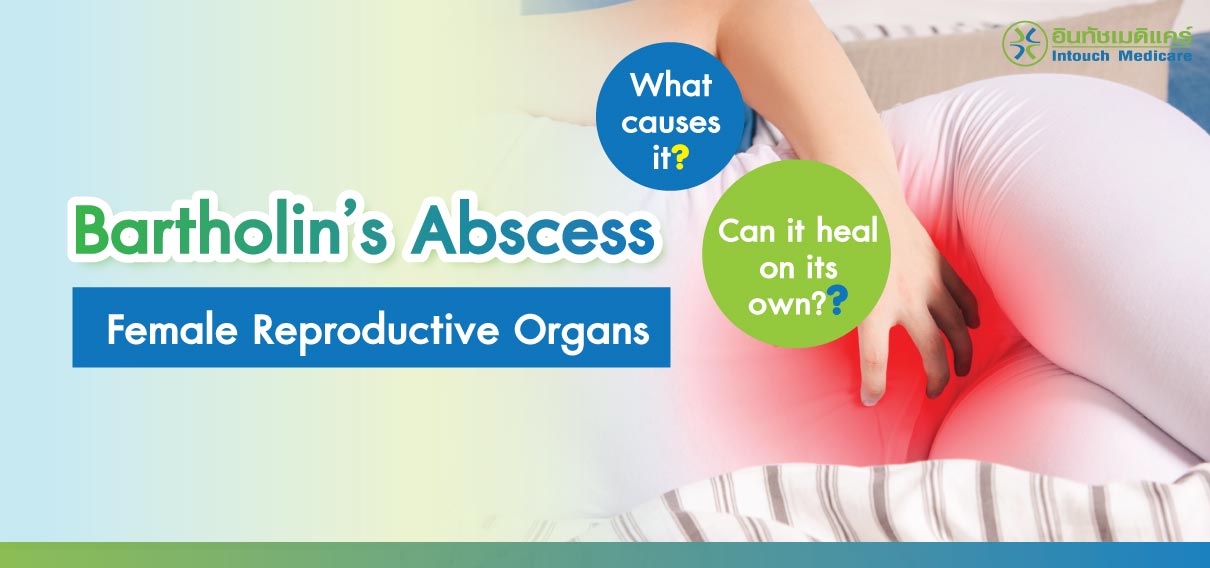Bartholin’s Abscess

Bartholin gland or vulvar abscess is an uncommon symptom that may occur in women of reproductive age. Therefore, it is important not to be complacent or neglect it for an extended period. For proper care, it is advisable to consult a doctor promptly. First, let's examine the symptoms of Bartholin gland inflammation, its causes, and whether it is self-limiting.
Information for women about the Bartholin gland:
Symptoms of Bartholin gland inflammation
This is a condition that commonly occurs in women of reproductive age. Patients typically experience pain in the area inside the genitalia, especially the labia. A palpable lump is present along with noticeable swelling and redness, often on one side. The pain intensifies during walking, sitting, or sexual intercourse. Some individuals may experience pus leakage from inflamed Bartholin glands.
|
In cases where symptoms are severe, fever may be present. Patients often exhibit symptoms of a Bartholin's cyst, which include a palpable lump, swelling into a fluid-filled sac inside the labia and near the vaginal opening, which is usually painless. While walking, it may feel like there is a lump in the genital area.

What causes Bartholin gland inflammation?
Bartholin's abscess is a common condition among women aged 20 to 30 years old. It occurs when a Bartholin cyst forms due to a blockage in one of the Bartholin glands located in the vagina. The blockage leads to swelling and inflammation caused by various bacteria. Pain, swelling, and redness result from the presence of a pus-filled abscess in the vaginal and anal regions.
Bacteria commonly found in the anus and surrounding skin are often implicated. However, sexually transmitted diseases such as chlamydia and gonorrhea can also be potential causes.

Can Bartholin's gland become inflamed and resolve on its own? Is it dangerous?
Even if a cyst drains or ruptures spontaneously, patients should still seek medical attention for treatment. This is because the pus may not have completely drained, leaving bacteria behind and increasing the risk of recurrent infections. If left untreated, the bacteria can spread to nearby organs, such as the urethra and vagina.
Most individuals cannot recover without treatment.
Risks associated with Bartholin gland inflammation
Bartholinitis infection poses risks beyond cyst drainage or spontaneous rupture. In severe and extensive cases, bacteria can enter the bloodstream, leading to bloodstream infections. Patients with underlying conditions are particularly vulnerable to this complication.
Additionally, some individuals may encounter post-treatment issues like bleeding, non-healing wounds, or significant scars. Moreover, inadequate treatment raises the likelihood of recurrence and exacerbates future Bartholin gland irritation.

Which foods should be avoided when your Bartholin glands are inflamed?
1. Avoid pickled food.
To induce inflammation and discourage the growth of germs in the vagina, it's recommended to avoid the following pickled foods: fermented fish, pickled fruits (such as mango, jackfruit, longan, and rambutan), pickled vegetables, and pickled bamboo shoots.
2. Avoid fried foods
Avoid consuming fried foods as they typically have a high fat content, which can lead to inflammation and promote weight gain. Increased body weight reduces the body's ability to regulate moisture levels.
3. Avoid seafood
Avoid seafood like squid and shrimp as they tend to have a strong fishy odor. High consumption of these foods can lead to increased vaginal discharge, odor, and itching.
4. Avoid consuming tea, coffee, or caffeine.
Drinks containing caffeine, like tea and coffee, can disrupt the balance of bacteria in the vagina, increasing the risk of infection and vaginal discharge.
5. Avoid strong flavors
Foods with intense flavors, such as those that are overly sweet, sour, spicy, or salty, can contribute to the problem. High sugar content in overly sweet foods can lead to increased sugar excretion in urine, promoting bacterial growth. This can result in heightened vaginal fungal activity and inflammation.
Sugar serves as a fuel for vaginal bacteria, and increased intake can lead to more discharge as the body attempts to expel excess sugar.![]()
6. Avoid foods high in gluten
Foods containing gluten, such as bread, wheat flour, and white flour, can slow wound healing and easily convert to sugar in the body. This elevation in blood sugar levels can exacerbate vaginal irritation and promote the spread of bacteria and fungi.
|
Treatment for Bartholin gland or vulvar abscess
The doctor's choice of treatment depends on the severity of the inflamed Bartholin's gland and the symptoms present. The most commonly used and effective treatment method is called marsupialization, which involves making an incision to drain pus and connecting the Bartholin gland wall to the skin layer.
This prevents the gland's ducts from becoming blocked again and ensures proper drainage of pus. Oral or injectable antibiotics and pain relievers are often prescribed to reduce inflammation. Additionally, there are other surgical techniques available, but the choice depends on the doctor's evaluation of the treatment.

After treatment, it is recommended to soak the wound in warm water three times a day (warm sit bath) to promote faster healing and better inflammation reduction. It's also important to follow up with the doctor regularly to closely evaluate the symptoms. Simple surgery to drain the pus or suctioning out the pus may lead to recurrence, so it's not recommended.

However, treatment of Bartholin's glands may vary for each patient and depends on the doctor's assessment of the individual's condition. It is advisable to consult with the doctor again to determine the most appropriate and effective treatment.

Prevention of Bartholin gland disease or vulvar abscess
Preventing Bartholinitis is challenging since it often occurs spontaneously and can have various causes.
|
Avoid risky behaviors for contracting sexually transmitted diseases and maintain proper hygiene in the genital area to reduce germs and the chance of infection.
Compiled by Nattawadee Sriborisut, MD.
Last Update : 30/01/2024


